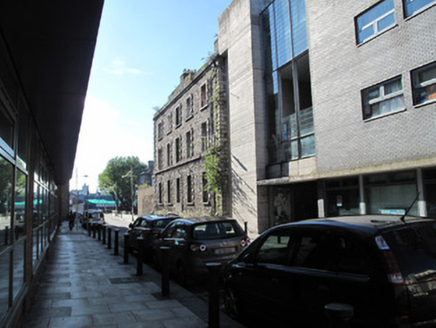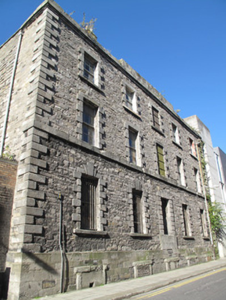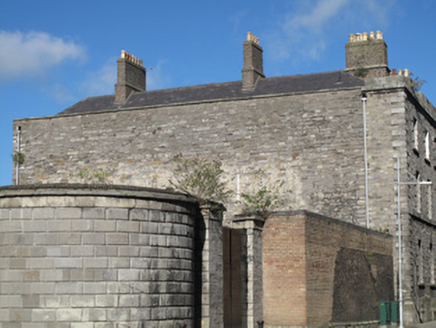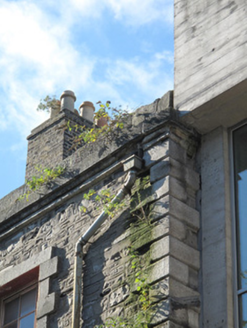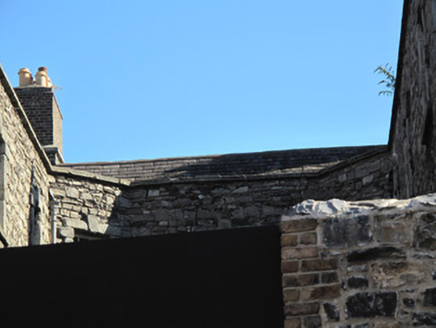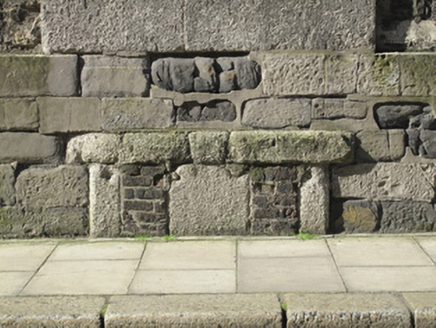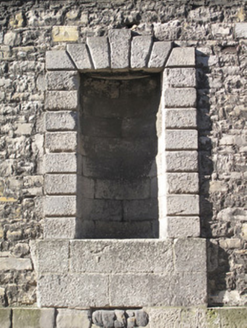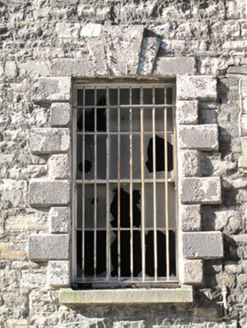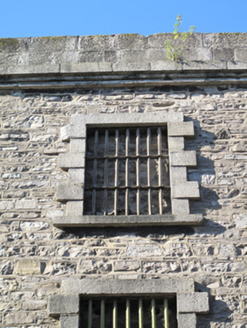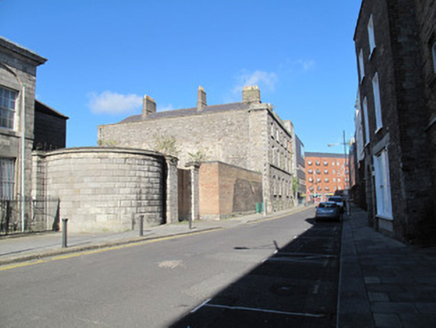Survey Data
Reg No
50070301
Rating
Regional
Categories of Special Interest
Architectural, Social
Previous Name
Debtors' Prison
Original Use
Prison/jail
Historical Use
Garda station/constabulary barracks
Date
1790 - 1795
Coordinates
315206, 234704
Date Recorded
13/10/2012
Date Updated
--/--/--
Description
Freestanding U-plan five-bay three-storey over half-basement former debtors' prison, built 1794, having returns to rear (west) elevation. Later in use as police barrack and subsequently in use as Garda Síochána station. Now disused. Hipped slate roofs, red brick chimneystacks with clay chimneypots and some cast-iron rainwater goods. Raised parapet wall having granite coping throughout, ashlar granite parapet over granite string course to front (east) elevation, stepped to centre. Roughly coursed dressed limestone walls, granite block-and-start quoins and platband forming continuous sill course to first floor to front. Square-headed niche to ground floor to front, rusticated granite surround and stepped voussoirs. Coursed squared limestone raised plinth course. Square-headed former window openings to plinth course, granite surrounds, blocked with red brick and render. Square-headed window openings throughout, rusticated granite block-and-start surrounds, sills and lintels, six-over-six pane timber sash windows, some having cast-iron railings, to front. Stepped granite keystones to ground floor windows. Square-headed window openings to rear elevations, having block-and-start granite surrounds and mixed six-over-six and one-over-one pane timber sash windows. Coursed rubble boundary wall surrounding yard to rear.
Appraisal
The strong and intimidating impression conveyed by this former debtors' prison is emphasised by granite detailing to the window surrounds and quoins, window rails, and by the absence of an entrance to the front, adding a suitably austere atmosphere, considered necessary for such civic buildings. This is further emphasised through the symmetrical U-shaped plan. This building could accommodate up to a hundred detainees in varying levels of comfort, and it was built to replace "sponging" houses, where debtors were held by bailiffs at their own expense, often extortionately, until their debt was repaid. The laws against debtors were severe in the nineteenth century and there were five debtors' prisons in Dublin in 1841. This one has survived in a largely intact state owing to its continuous use: it is labelled as a police barrack on the 1907 Ordnance Survey and was subsequently repurposed as a Garda Síochána station.
